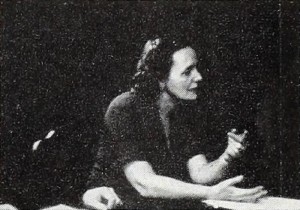
"If you are engaged in any phase of little theatre work, Prelude to Performance is certainly your picture. However, even if you are not engaged in any phase of little theatre work, Prelude to Performance is also your picture. That fact of universal appeal is the true measure of this movie's success. Made by John W. Jones with the cooperation of the London Little Theatre, in Ontario, Canada, the primary purpose of this picture was to outline (and, if possible, teach) the basic steps of putting a play together. This it most certainly does, from the inception of the idea down to the rise of the opening night curtain. But in the process — through a sound sense of cinematic treatment and smoothly integrated subtitles — the picture maintains a lively and appealing interest for all." Movie Makers, Dec. 1951, 412.
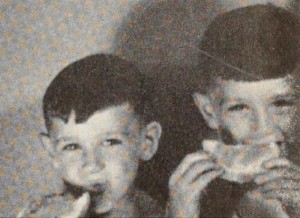
"Going back to The Lord's Prayer for the title of his picture, A. T. Bartlett has produced a handsome, heart-warming and technically able documentary on the theme "Our Daily Bread." In it one follows the staff of life from the vast and golden wheat fields of Australia, through the harvesting and milling of the grain, into the baker's hands and onto my lady's table. Give Us This Day is intelligently planned, smoothly developed and suavely executed. A simple but satisfying narrative continually relates the subject — as it should be — directly to human needs, and a pleasant musical score rounds out the presentation. Especially to be commended is the minimum of footage used by Mr. Bartlett in reporting on this age-old activity of mankind." Movie Makers, Dec. 1952, 339.
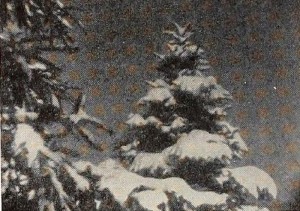
"With a sensitive feeling for nature's changing patterns, even in her least productive season, Herman E. Dow has captured the flavor and beauty of New England's quiet countryside in Woods and Waters of Winterland. Closeups of streams trickling through icebound banks and selective compositions of snow-laden boughs and bleak branches contribute to the overall theme of a pleasant scenic study. A musical accompaniment for the film is well chosen and recorded." Movie Makers, Dec. 1952, 341.
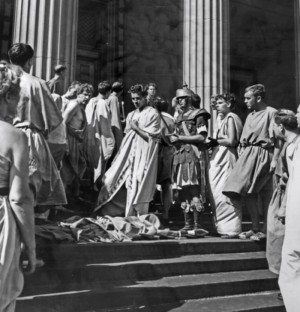
Charlton Heston stars in David Bradley's amateur adaptation of Shakespeare's Julius Caesar. "Julius Caesar was produced with amateur actors and makes impressive use of available, neoclassical Chicago locations, including the steps of the Art Institute and the pillars of Solider Field. But the film, which cost at least fifteen thousand dollars to produce, was seen by both the ACL and the local Chicago press as a quasi-professional--if independent--production; indeed, it was on the merits of this film that Bradley won his much-sought-after contract with MGM" Tepperman, 252-253.
Film record of the 1951 and 1952 Rose Parades.
"'Jeep Trails Through Utah' was produced by Stan Midgley with the use of a jeep rather than his faithful bicycle. He had to leave his bicycle at home, as the deep sands of Utah can only be traveled in a jeep. In his mechanical horse he criss-crossed one of the emptiest blanks on the American map. He leaves the traveled highways and goes back into the little known areas to find fantastically beautiful and unusual natural formations. He travels over sand-blown desert trails, up rocky mountain paths and through treacherous mountain gorges to produce a gem-like picture of Utah." La Canada Valley Sun, Sept. 9, 1971.
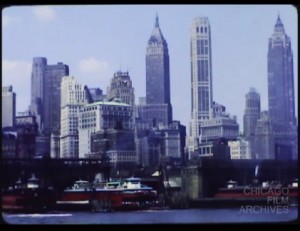
"Two part edited travelogue taking place in the Hudson Valley area. Part one begins at Coney Island, and then takes viewers through New York City before heading to places such as West Point and Poughkeepsie where cough drops are being made. Part two Includes much footage on Hudson river, the process of manufacturing wallpaper at Imperial Color and a visit to the North Pole theme park." Chicago Film Archives.
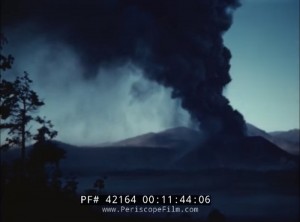
"This extraordinary silent 16mm home movie was shot by Dr. Harold L. Thompson, and shows the eruption of the Paricutin volcano. It likely dates towards the end of the volcanic eruption in the early 1950s." Periscope Film.
"Depicts in detail the making of a silver coffee pot by silversmith George Bennett of W.A. Carmichael's shop in Victoria. Won honourable mention in the amateur category at the 1952 Canadian Film Awards" (Duffy, 182).
"In 1951-52 the Cine-Club made a 10-minute educational film in French based on the high school text 'Cours primaire de francais' and this film is now widely used in Ontario Secondary Schools" The Varsity.
Total Pages: 299